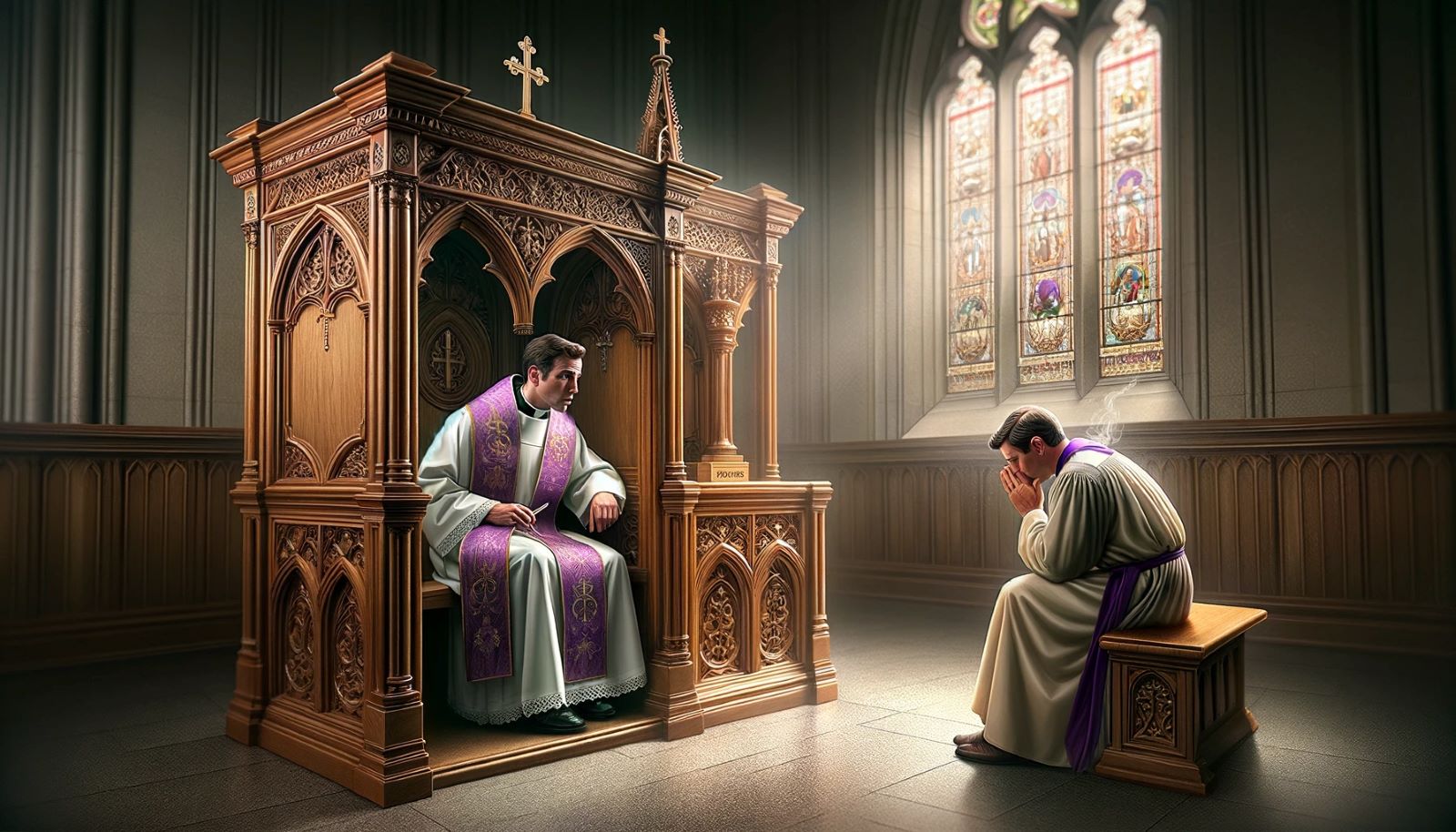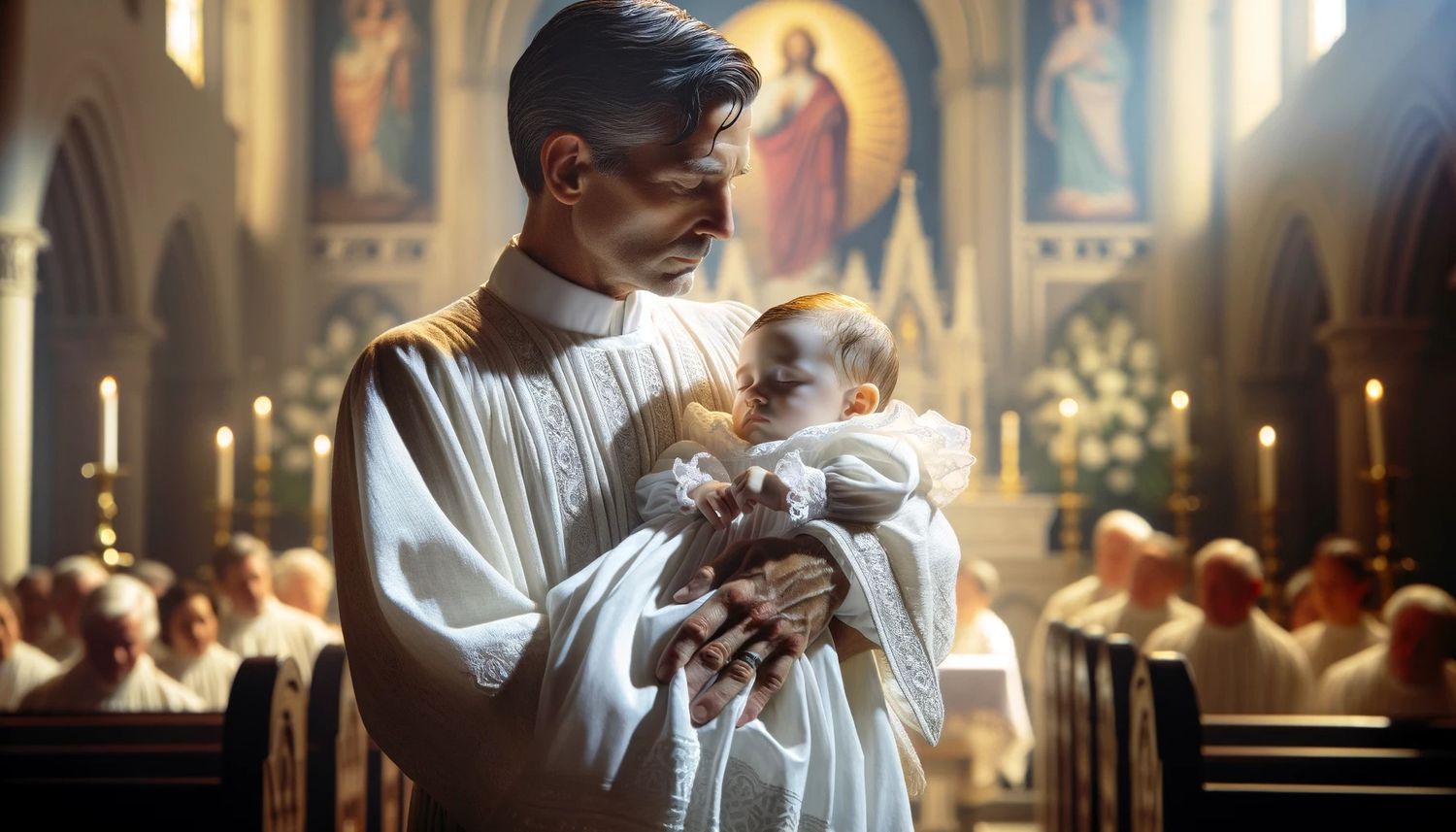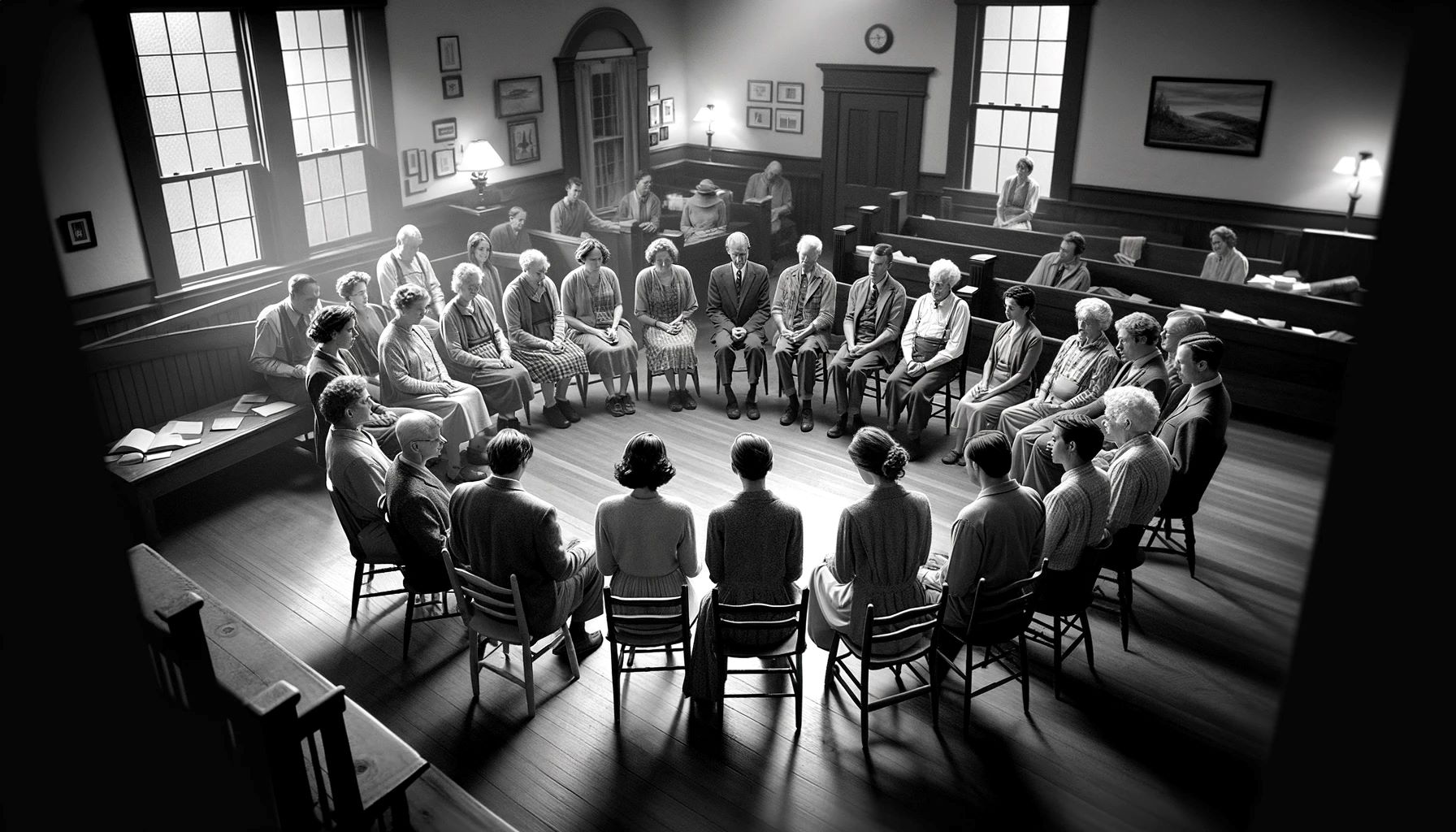Home>Theology and Spirituality>What Is The Catholic Charismatic Movement


Theology and Spirituality
What Is The Catholic Charismatic Movement
Published: February 11, 2024
Jason DeRose, Managing Editor at Christian.net, uses his expertise in religion and journalism to deepen understanding of faith's societal impacts. His editorial leadership, coupled with a strong academic background, enriches the platform’s diverse content, earning him recognition in both journalism and religious circles.
Discover the theology and spirituality behind the Catholic Charismatic Movement. Learn about its history, beliefs, and impact on the Catholic Church.
(Many of the links in this article redirect to a specific reviewed product. Your purchase of these products through affiliate links helps to generate commission for Christian.net, at no extra cost. Learn more)
Table of Contents
Introduction
The Catholic Charismatic Movement is a vibrant and dynamic expression of faith within the Catholic Church. It is characterized by a fervent embrace of the Holy Spirit's presence and gifts, leading to a deeply personal and experiential encounter with God. This movement has significantly impacted the spiritual landscape of Catholicism, fostering a renewed sense of enthusiasm and spiritual vitality among its adherents.
The Catholic Charismatic Movement is rooted in the belief that the Holy Spirit is actively at work in the lives of believers, empowering them with spiritual gifts such as speaking in tongues, prophecy, healing, and discernment. These gifts are seen as a manifestation of the Spirit's presence and a means of edifying the individual and the community.
At its core, the movement emphasizes the transformative power of the Holy Spirit, seeking to enliven the faith of Catholics and deepen their relationship with God. This emphasis on spiritual renewal and a personal encounter with the divine sets the Catholic Charismatic Movement apart as a distinct and influential force within the broader Catholic tradition.
The movement's impact extends beyond individual spiritual experiences, influencing the communal worship practices and devotional life of Catholic communities worldwide. Through its emphasis on charismatic worship, including vibrant praise and worship, spontaneous prayer, and a heightened awareness of the Spirit's presence, the movement has brought a renewed sense of vitality to Catholic liturgical expressions.
As we delve deeper into the history, beliefs, and controversies surrounding the Catholic Charismatic Movement, it becomes evident that this phenomenon has left an indelible mark on the Catholic Church, shaping the spiritual journeys of countless individuals and contributing to the rich tapestry of Catholic spirituality.
Read more: What Is The Hyper Charismatic Movement
History of the Catholic Charismatic Movement
The roots of the Catholic Charismatic Movement can be traced back to the mid-20th century, a time marked by a growing emphasis on the renewal of spiritual experiences within various Christian traditions. The movement emerged within the Catholic Church in the 1960s and 1970s, gaining momentum as a response to a widespread desire for a deeper, more experiential faith.
One of the pivotal events in the movement's history was the Duquesne Weekend, a retreat held at Duquesne University in 1967. During this retreat, a group of Catholic students experienced a profound outpouring of the Holy Spirit, leading to a renewal of their faith and a newfound fervor for charismatic worship and spiritual gifts. This transformative encounter served as a catalyst for the spread of the charismatic renewal within Catholicism.
The movement quickly gained traction, spreading to various parts of the world and attracting a diverse array of adherents, including clergy, religious, and laypeople. Its growth was facilitated by international conferences, charismatic prayer groups, and the formation of organizations dedicated to promoting charismatic spirituality within the Catholic Church.
In 1975, Pope Paul VI acknowledged the movement's significance, affirming its place within the Church and encouraging its members to remain rooted in the sacramental life of Catholicism. Subsequently, the movement continued to flourish, influencing the devotional practices and worship styles of Catholic communities globally.
The historical development of the Catholic Charismatic Movement reflects a broader trend within Christianity, characterized by a renewed emphasis on the experiential dimension of faith and a longing for spiritual renewal. Its origins in the 20th century underscore the movement's relevance to contemporary expressions of Catholic spirituality, serving as a testament to the enduring impact of the Holy Spirit on the life of the Church.
As the movement continues to evolve and shape the spiritual landscape of Catholicism, its historical trajectory remains a testament to the enduring quest for a vibrant, experiential faith within the Catholic tradition.
Beliefs and Practices
The Catholic Charismatic Movement is underpinned by a set of core beliefs and practices that distinguish it within the broader context of Catholic spirituality. At the heart of the movement lies a fervent belief in the active presence and transformative power of the Holy Spirit in the lives of believers. This belief shapes the movement's practices and gives rise to a distinctive expression of charismatic spirituality within the Catholic Church.
Central to the beliefs of the Catholic Charismatic Movement is the conviction that the Holy Spirit bestows spiritual gifts upon believers, empowering them to participate in the life and mission of the Church. These gifts, as outlined in the New Testament, include speaking in tongues, prophecy, healing, discernment of spirits, and various forms of charismatic prayer. The movement emphasizes the importance of cultivating and exercising these gifts within the context of communal worship and personal prayer, viewing them as manifestations of the Spirit's presence and a means of edification for the individual and the community.
Charismatic worship practices play a pivotal role in the movement, characterized by vibrant praise and worship, spontaneous prayer, and a heightened awareness of the Spirit's presence. This form of worship often involves the use of contemporary music, expressive gestures, and an openness to the leading of the Spirit in prayer and praise. The movement's emphasis on charismatic worship reflects its belief in the transformative and renewing work of the Holy Spirit in the lives of believers, fostering a sense of spiritual vitality and intimacy with God.
In addition to charismatic worship, the Catholic Charismatic Movement places a strong emphasis on personal prayer and spiritual formation. Adherents are encouraged to cultivate a deep, personal relationship with God through prayer, scripture reading, and participation in charismatic prayer groups. These groups serve as a supportive environment for believers to share their spiritual experiences, pray for one another, and discern the movement of the Spirit in their lives.
The movement also upholds the sacramental life of the Church, recognizing the importance of the Eucharist, reconciliation, and other sacraments in nurturing the spiritual growth of believers. While emphasizing the experiential dimension of faith, the Catholic Charismatic Movement remains firmly rooted in the sacramental and liturgical traditions of Catholicism, seeking to integrate charismatic spirituality with the rich heritage of the Church.
Overall, the beliefs and practices of the Catholic Charismatic Movement reflect a deep commitment to experiencing the transformative power of the Holy Spirit in both personal and communal contexts. This emphasis on charismatic worship, spiritual gifts, and a vibrant prayer life has contributed to the movement's enduring impact on the spiritual landscape of Catholicism, fostering a renewed sense of enthusiasm and spiritual vitality among its adherents.
Spread and Influence
The Catholic Charismatic Movement has experienced a remarkable spread and wielded a profound influence within the Catholic Church and beyond. What began as a fervent renewal of spiritual experiences within the Church has evolved into a global phenomenon, leaving an indelible mark on the spiritual landscape of Catholicism.
The movement's spread can be attributed to its ability to resonate with individuals from diverse cultural, linguistic, and geographical backgrounds. Charismatic prayer groups, conferences, and charismatic communities have played a pivotal role in disseminating the movement's teachings and practices, fostering a sense of spiritual kinship among believers worldwide. This global outreach has contributed to the movement's widespread influence, transcending traditional boundaries and enriching the spiritual lives of Catholics across continents.
The influence of the Catholic Charismatic Movement extends beyond the realm of personal spirituality, permeating the communal worship practices and devotional life of Catholic communities. Charismatic worship, characterized by vibrant praise and worship, spontaneous prayer, and a heightened awareness of the Spirit's presence, has brought a renewed sense of vitality to Catholic liturgical expressions. This infusion of charismatic spirituality has invigorated the worship experiences of countless congregations, infusing them with a palpable sense of joy, fervor, and expectancy.
Moreover, the movement has fostered a deeper appreciation for the spiritual gifts bestowed by the Holy Spirit, leading to a reinvigoration of charismatic worship and a heightened openness to the Spirit's transformative work. This emphasis on spiritual gifts and the experiential dimension of faith has contributed to a renewed sense of enthusiasm and spiritual vitality among its adherents, inspiring them to actively participate in the life and mission of the Church.
The Catholic Charismatic Movement has also influenced the broader ecumenical dialogue, fostering greater collaboration and understanding between charismatic Catholics and their counterparts in other Christian traditions. This spirit of ecumenism has contributed to a deeper sense of unity and shared spiritual fellowship, transcending denominational differences and fostering a sense of common purpose in advancing the Kingdom of God.
In essence, the spread and influence of the Catholic Charismatic Movement underscore its enduring impact on the spiritual fabric of Catholicism, shaping the worship practices, devotional life, and communal experiences of believers worldwide. As the movement continues to evolve and expand, its influence remains a testament to the transformative power of the Holy Spirit within the Catholic Church and the broader Christian community.
Criticisms and Controversies
The Catholic Charismatic Movement, despite its widespread impact and fervent following, has not been immune to criticisms and controversies within the broader Catholic community. These concerns have sparked debates and raised questions about the movement's theological implications, its impact on traditional liturgical practices, and its potential for fostering division within the Church.
One of the primary criticisms leveled against the movement pertains to its emphasis on charismatic worship and spiritual gifts. Some critics argue that the exuberant expressions of charismatic worship, including speaking in tongues and prophetic utterances, may diverge from the solemnity and reverence traditionally associated with Catholic liturgical practices. This divergence has led to concerns about the potential disruption of established worship norms and the need to maintain a sense of decorum within the liturgical context.
Additionally, the movement's emphasis on spiritual gifts, particularly the practice of speaking in tongues, has elicited theological debates within the Catholic community. While charismatic Catholics view these gifts as a manifestation of the Holy Spirit's presence and a source of spiritual edification, critics have raised questions about the theological interpretation and regulation of such practices within the context of Catholic tradition.
Furthermore, the Catholic Charismatic Movement has faced criticisms related to its potential for fostering division within the Church. Some individuals have expressed concerns about the polarization that may arise between charismatic and non-charismatic Catholics, leading to a sense of disunity and discord within the faith community. These concerns highlight the need for fostering greater understanding and dialogue between proponents and critics of the movement, seeking to bridge potential divides and promote a spirit of unity within the Church.
Controversies surrounding the movement have also touched on issues of pastoral oversight and discernment of spiritual experiences. Critics have raised questions about the need for appropriate pastoral guidance and discernment in the context of charismatic spirituality, emphasizing the importance of ensuring that spiritual experiences align with the teachings and traditions of the Catholic Church.
In navigating these criticisms and controversies, it is essential to engage in constructive dialogue and discernment, seeking to address concerns while recognizing the movement's positive contributions to the spiritual vitality of the Church. By fostering open communication and a spirit of discernment, the Catholic Charismatic Movement can navigate these challenges and continue to enrich the spiritual lives of believers within the context of Catholic tradition.
Read more: What Is Charismatic Catholic
Impact on the Catholic Church
The Catholic Charismatic Movement has exerted a profound and multifaceted impact on the Catholic Church, shaping its spiritual landscape, communal worship practices, and the lived experiences of its adherents. At the heart of this impact lies a renewed sense of spiritual vitality and enthusiasm, permeating the fabric of the Church and invigorating its communal life.
One of the most notable impacts of the movement is evident in the realm of communal worship. Charismatic spirituality has infused Catholic liturgical expressions with a palpable sense of joy, fervor, and expectancy. The vibrant praise and worship, spontaneous prayer, and heightened awareness of the Spirit's presence have reinvigorated the worship experiences of countless congregations, fostering a deeper engagement with the divine and a renewed sense of communal unity.
Furthermore, the movement has catalyzed a renewed appreciation for the spiritual gifts bestowed by the Holy Spirit, leading to a reinvigoration of charismatic worship and a heightened openness to the Spirit's transformative work. This emphasis on spiritual gifts and the experiential dimension of faith has contributed to a renewed sense of enthusiasm and spiritual vitality among its adherents, inspiring them to actively participate in the life and mission of the Church.
The impact of the Catholic Charismatic Movement extends beyond the realm of worship, permeating the devotional life of Catholic communities. The movement's emphasis on personal prayer, spiritual formation, and the cultivation of a deep, personal relationship with God has enriched the spiritual journeys of countless individuals, fostering a sense of intimacy with the divine and a renewed zeal for living out their faith.
Moreover, the movement has fostered a spirit of ecumenism, fostering greater collaboration and understanding between charismatic Catholics and their counterparts in other Christian traditions. This ecumenical outlook has contributed to a deeper sense of unity and shared spiritual fellowship, transcending denominational differences and fostering a sense of common purpose in advancing the Kingdom of God.
In essence, the impact of the Catholic Charismatic Movement on the Catholic Church is characterized by a revitalization of spiritual fervor, a deepened sense of communal worship, and a renewed commitment to the transformative work of the Holy Spirit. As the movement continues to evolve and shape the spiritual landscape of Catholicism, its impact remains a testament to the enduring presence and influence of the Holy Spirit within the Church.
Conclusion
In conclusion, the Catholic Charismatic Movement stands as a vibrant and transformative force within the Catholic Church, embodying a fervent pursuit of the Holy Spirit's presence and gifts. From its humble origins in the mid-20th century to its global reach and enduring impact, the movement has left an indelible mark on the spiritual landscape of Catholicism.
The historical trajectory of the movement reflects a broader longing for spiritual renewal and a deeper, more experiential faith within the Catholic tradition. Its emphasis on charismatic worship, spiritual gifts, and a personal encounter with the divine has resonated with individuals from diverse cultural and geographical backgrounds, leading to its widespread influence and global outreach.
While the movement has faced criticisms and controversies, particularly regarding its impact on traditional liturgical practices and theological interpretations, it remains a testament to the enduring quest for a vibrant, experiential faith within the Catholic tradition. By fostering open dialogue, discernment, and a spirit of unity, the movement can navigate these challenges and continue to enrich the spiritual lives of believers within the context of Catholic tradition.
The impact of the Catholic Charismatic Movement on the Catholic Church is multifaceted, permeating communal worship practices, devotional life, and the lived experiences of its adherents. Its infusion of charismatic spirituality has invigorated the worship experiences of countless congregations, fostering a deeper engagement with the divine and a renewed sense of communal unity. Moreover, the movement has catalyzed a renewed appreciation for the spiritual gifts bestowed by the Holy Spirit, inspiring a renewed sense of enthusiasm and spiritual vitality among its adherents.
As the movement continues to evolve and shape the spiritual landscape of Catholicism, its impact remains a testament to the enduring presence and influence of the Holy Spirit within the Church. The Catholic Charismatic Movement serves as a powerful reminder of the transformative power of the Holy Spirit and the enduring quest for spiritual renewal within the Catholic tradition.














